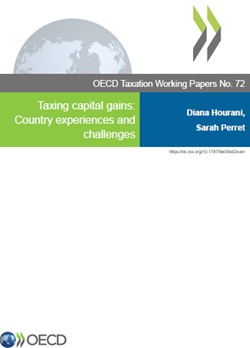-
IFRS
At Grant Thornton, our IFRS advisers can help you navigate the complexity of financial reporting.
-
Audit quality monitoring
Having a robust process of quality control is one of the most effective ways to guarantee we deliver high-quality services to our clients.
-
Global audit technology
We apply our global audit methodology through an integrated set of software tools known as the Voyager suite.
-
Supply Chain and Operation Services
An optimised and resilient supply chain is essential for success in an ever-evolving business landscape
-
Business risk services
The relationship between a company and its auditor has changed. Organisations must understand and manage risk and seek an appropriate balance between risk and opportunities.
-
Marketing and Client Service
We offer strategy, client service, digital and insight solutions to businesses that are shaping the future across the Middle East.
-
Forensic services
At Grant Thornton, we have a wealth of knowledge in forensic services and can support you with issues such as dispute resolution, fraud and insurance claims.
-
Deal Advisory
At Grant Thornton, we deliver deal advisory services through a strategic lens, providing end-to-end support that enables our clients to unlock value, manage risk, and make informed decisions with confidence. Our team works closely with businesses across Saudi Arabia to navigate the complexities of transactions and drive smart, sustainable outcomes.
-
Growth services
We have designed and developed growth services to support your business at each phase of its growth. So whether you are an SME that has just set up or a large business wishing to expand, at Grant Thornton we will help you unlock your potential for growth.


Recently, the OECD’s Centre for Tax Policy and Administration released a Working Paper analyzing capital gains taxation in OECD countries, highlighting key challenges and potential reforms. This paper provides valuable insights into how different countries tax capital gains, the economic impact of these policies, and their implications for Saudi investors, businesses, and policymakers.
Key Takeaways from the OECD Working Paper
The report covers the international experience of capital gains taxation, including its economic rationale, equity concerns, and revenue implications. Here are the most relevant findings:
1. Capital Gains Are Usually Taxed Upon Realization
- Most OECD countries tax capital gains only when the asset is sold, not as they accrue.
- The majority apply lower tax rates or offer exemptions for certain types of assets, such as housing or business shares.
2. Favorable CGT Treatment May Create Distortions
- Lower tax rates on capital gains compared to wages create equity issues, as wealthier individuals benefit disproportionately.
- CGT relief can distort investment decisions, causing the “lock-in effect,” where investors delay selling assets to defer tax payments.
- Revenue collection challenges arise due to strategic tax planning and international tax competition.
3. OECD Recommendations for CGT Reform
The paper outlines potential alternatives to the current realization-based approach:
- Indexation for inflation to prevent taxation on nominal gains.
- Deemed realization at specific intervals to minimize lock-in effects.
- Retrospective taxation or accrual-based taxation, where feasible, to ensure fairer tax treatment.
Implications for Saudi Investors & Businesses
While Saudi Arabia currently does not impose a capital gains tax, policymakers may consider international trends as they refine tax regulations in line with Vision 2030. Investors, especially in M&A transactions, real estate, and equity markets, should stay informed about global CGT practices to ensure compliance in cross-border transactions.
How Grant Thornton Saudi Arabia Can Help
At Grant Thornton Saudi Arabia, we specialize in international tax advisory, M&A tax planning, and capital gains structuring to ensure compliance and optimize financial outcomes. Our team is ready to guide you through tax-efficient strategies, helping you protect your gains while remaining compliant with global best practices.

OECD’s Working Paper on Taxing Capital Gains
The report covers the international experience of capital gains taxation, including its economic rationale, equity concerns, and revenue implications.

